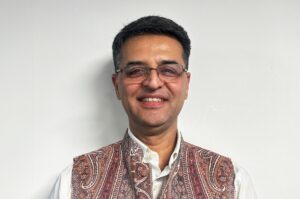
Women Entrepreneurs: Redefining Leadership in the Fitness Industry
In India’s overlooked classrooms and remote villages, a quiet revolution is gaining momentum—led not by policymakers in boardrooms, but by educators, health workers, and changemakers on the ground. At the helm of this movement is Sundeep Talwar, CEO of Impact Guru Foundation (IGF-India), who believes that education must do more than inform—it must transform.
In this candid conversation, Talwar discusses how IGF-India is rewriting the narrative on gender equality by addressing deep-rooted social norms through innovative programs on gender sensitization, menstrual hygiene management, financial and digital literacy, and grassroots engagement.
From ensuring that a girl’s period doesn’t mean a missed education to empowering boys to become caregivers, Talwar argues that meaningful change begins with asking the right questions—and daring to answer them with action.
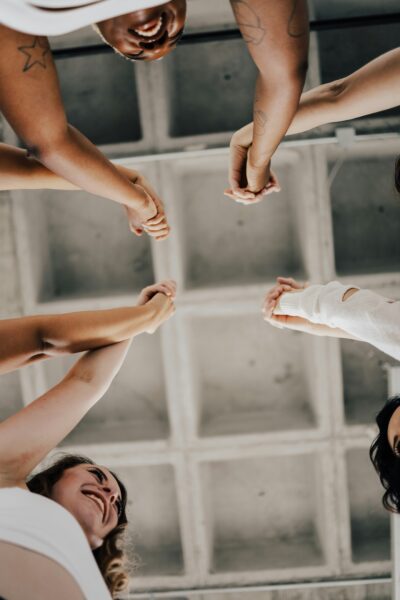
How can education be designed to address deeply entrenched gender norms that limit workforce participation, especially among women?
In the dusty lanes of rural Maharashtra, a quiet revolution is underway. It begins not with grand speeches, but with a simple question posed in a classroom: “Why can’t girls become engineers, or boys become nurses?” This question, asked by a teacher trained by Impact Guru Foundation (IGF-India), sparks laughter, then thoughtful silence, and finally, honest conversation.
Too many dreams are cut short by old gender rules. In India, millions of girls drop out and boys are boxed in by tradition-robbing both of their true potential. It’s time to break the barriers and let every child learn, lead, and thrive.
At IGF, we believe that education is not just about textbooks; it is about challenging mindsets and unlocking opportunity for all, regardless of gender. Our programs are designed to spark curiosity, inspire confidence, and equip both girls and boys to question the status quo.
We are transforming classrooms through gender-sensitization workshops, developing inclusive curriculum, and launching mentorship initiatives that empower children to dream beyond stereotypes. We envision a future where every girl can become an engineer, every boy can become a caregiver, and every child can pursue a path defined by their talent and passion—not outdated norms.
The journey begins with a single question, and with IGF’s support, that question will become a catalyst for change—igniting a movement where gender no longer limits ambition, and every child is free to realize their full potential.
Because when we challenge norms today, we build a future where everyone has the right to dream—and the power to achieve.
Menstrual Hygiene Management: A Catalyst for Gender Equality
A vital part of the journey to gender equality is Menstrual Hygiene Management (MHM)-a challenge that is too often overlooked, yet deeply impacts girls’ education and empowerment. In many parts of India, taboos and lack of access to menstrual hygiene products force millions of girls to miss school every month, leading to absenteeism, lower confidence, and, ultimately, higher dropout rates.
At IGF-India, we believe that breaking the silence around menstruation is essential to unlocking every girl’s potential. That’s why we work hand-in-hand with schools, Anganwadis, and communities to ensure that girls have both the knowledge and resources they need to manage their mensuration cycles with dignity.
Our MHM initiatives go beyond simply distributing sanitary products. We train teachers to lead open, stigma-free discussions about menstrual health, install safe and private sanitation facilities, and engage parents and boys in awareness sessions to foster understanding and support. By normalizing conversations around menstruation and ensuring access to hygiene essentials, we are removing a major barrier that keeps girls from attending and thriving in school.
The impact is clear: ‘when girls feel safe and confident during their periods, they stay in school longer, participate more actively in class and extracurriculars, and dare to dream bigger’. This ripple effect doesn’t stop at the school gates-when women are supported, entire communities become healthier, more educated, and more prosperous.
At IGF-India, we know that menstrual hygiene management is not just a health issue-it’s a matter of equality, dignity, and opportunity. By empowering girls today, we’re building stronger, more inclusive communities for tomorrow.
Learn more about our mission and join us in breaking barriers atigfindia.org
What is the importance of integrating financial and digital literacy into grassroots education programs for underserved communities?
In a quiet village on the edge of Maharashtra near Igatpuri, a young woman named Radha had never owned a bank account. She had never heard of DigiLocker, didn’t know she was eligible for government welfare schemes, and thought smartphones were just for social media—not survival. Considering she belongs to the minority community and BPL category; she could have continued her education with scholarship and can also seek welfare fund for her widow mother. Radha’s story isn’t unique. It mirrors that of millions across India, who remain excluded not by choice, but by lack of awareness, access, and support.
At IGF-India, we’ve made it our mission to change that narrative. Through our grassroots education programs, we are bridging the gap between potential and opportunity—starting with financial and digital literacy.
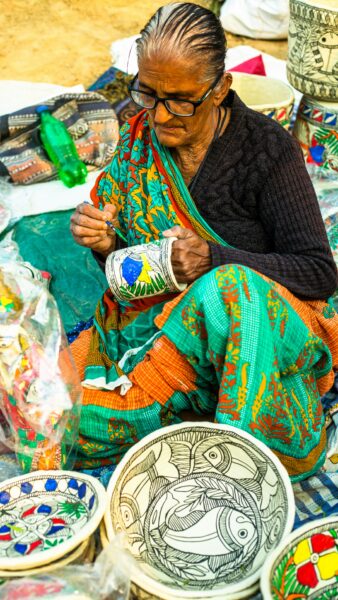
Why is this crucial?
Because despite India spending over ₹8.28 lakh crore ($100 billion) on social welfare in 2023-24, these schemes often remain out of reach for those who need them the most—simply because they don’t know they exist, don’t have the documents, or don’t know how to apply.
That’s where we come in.
We’ve launched transformational programs tailored for:
Women breaking free from financial and social constraints
Youth seeking future-ready skills and careers
Gig workers, farmers, drivers, traders, and nano/micro entrepreneurs striving for stability and growth
Through these programs, we’re not just teaching—we’re transforming lives.
We educate beneficiaries on:
- Digital tools like DigiLocker so they can safely store and access essential documents
- Account Aggregator systems so they can take control of their financial data and access formal credit
- Financial literacy, from budgeting and saving to avoiding fraud and debt traps
- Social security schemes, ensuring no eligible person is left behind due to red tape
- Vocational and industry-relevant skills to increase employment and self-employment opportunities
The program is being implemented directly by IGF-India with the help of trained facilitators who don’t just teach—they walk the journey with our beneficiaries, helping them register, apply, and follow through. We’ve seen farmers who now access crop insurance, women who’ve launched home businesses, and gig workers who now manage their finances like professionals. Each success story is a reminder: when you give people access to the right tools and information, they don’t just survive—they thrive.
Our work directly supports:
- Education, including special and vocational education
- Skill development for children, women, elderly, and differently-abled individuals
- Livelihood enhancement for gig workers and micro-entrepreneurs
- Digital empowerment through DigiLocker and Account Aggregator access
At IGF-India, this isn’t just a program. It’s a movement—a quiet revolution led by the people, for the people. And it starts with something as simple, yet as powerful, as knowledge.
Let us know if you’d like to highlight one of these stories for your next feature or campaign—we’d be glad to share more.
In what ways can scholarships and targeted upskilling opportunities improve career outcomes for youth from low-income backgrounds?
Nisha was only in Class 10 when her world began to unravel.
The oldest of three siblings, she grew up in a low-income household in Jonapur, Delhi, where life was tough but dreams were big. Her father, despite his struggles with alcoholism, remained the sole breadwinner of the family. But when he passed away due to health complications, everything changed overnight.
Suddenly, her mother—grieving and financially unprepared—was left to carry the weight of raising three children on her own. The COVID-19 pandemic made things even worse. With lockdowns and economic uncertainty, finding work became nearly impossible. Nisha, though just a teenager, took on more responsibilities at home—caring for her younger siblings while trying to stay committed to school.
She had every reason to give up. But she didn’t.
Instead, she fought to hold onto her dream of completing her education and uplifting her family. That’s when IGF-India stepped in through the Sanjeevani Educational Scholarship Program—a beacon of hope for children like Nisha, who had lost their primary breadwinners during the pandemic.
The scholarship didn’t just pay her school fees. It gave her a lifeline.
Through IGF-India’s support, Nisha received:
- School tuition, uniforms, books, transport, and meals
- Development support in the form of digital learning tools, personal development sessions, and access to a safe learning environment
- Emotional stability, knowing she was not alone in this battle
But IGF-India’s commitment goes beyond covering educational expenses. We also introduced upskilling opportunities to help Nisha build practical knowledge for a sustainable future.
She was enrolled in a digital literacy module, where she learned how to use basic tech tools, manage files on DigiLocker, and explore financial services via Account Aggregator platforms. She also attended sessions on financial literacy, learning how to save, budget, and support her family in small but impactful ways.
Today, Nisha stands not as a victim of her circumstances, but as a young girl with purpose and a plan. She’s preparing to complete her 10th-grade board exams, and dreams of becoming a teacher—so she can guide other children like herself toward a brighter path.
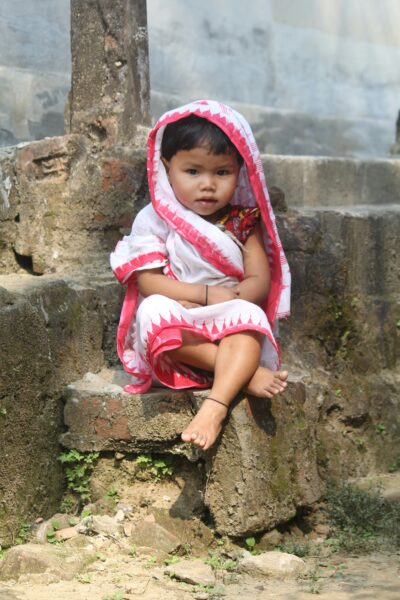
Why do scholarships and upskilling matter?
Because for youth like Nisha, it’s not just about staying in school—it’s about staying in the race.
It’s about not letting poverty, grief, or crisis be the end of their story.
It’s about showing them that they have value, potential, and the right to dream.
At IGF-India, we are proud to walk alongside children like Nisha—offering more than support; we offer possibility.
Because when hope is placed in the right hands, the future changes.
How do you view the role of community health workers like ASHA and Anganwadi workers in spreading awareness and fostering educational engagement at the local level?
In the narrow, sun-dappled by lanes of a tribal village in Palghar district, when someone in the community is unwell, unsure, or unheard—it’s not a doctor or social worker who shows up first. It’s someone far more familiar. It’s Lakshmi tai, the village’s ASHA worker, walking briskly with her cloth bag, a bottle of water, some iron tablets, and a world of knowledge carried in her memory.
She is not a government officer or NGO head, yet she knows which child hasn’t been vaccinated, which girl stopped going to school, and which mother quietly hides her health worries behind a smile. She is the heartbeat of the community, and she doesn’t need a title to command respect.
At IGF-India, we’ve always believed that change cannot be parachuted into communities. It has to grow from within. That’s why we see ASHA and Anganwadi workers not just as frontline facilitators—but as the very foundation on which community transformation is built.
The Many Roles They Play
In our work—from sanitary pad vending machine installations in government schools & community centres (including railways stations) to financial literacy workshops for gig workers and rural women—we’ve seen these incredible women wear many hats:
- Doorstep educators – explaining the importance of menstrual hygiene or vaccination in simple, local dialects
- Listeners and counsellors – sitting cross-legged on mud floors, talking to worried mothers and anxious teenagers
- Awareness champions – spreading word about school re-enrolments, social security schemes, or how to use DigiLocker to store vital documents
- Digital enablers – guiding the community to use mobile phones not just for entertainment, but for empowerment—whether it’s filling a scholarship form or checking for a government scheme through Account Aggregator platforms
They don’t need PowerPoints or podiums. They lead through relationships, trust, and relentless consistency.
A Story That Stays With Us
During our work in Palghar, we met Minakshi, a shy 13-year-old girl who had just hit puberty and was scared to return to school. She was ashamed, confused, and didn’t have the words to express what she felt. Her mother didn’t know how to comfort her either. It was the Anganwadi worker in their area who noticed her silence and sat with her patiently, explaining how menstruation was normal, how she could manage it, and why she must continue school without shame.
This small, compassionate conversation led Minakshi back to the classroom.
The sanitary pad vending machine we had installed was there. But it was the human bridge—the Anganwadi worker—who turned it from a metal box into a tool of confidence.
So, how do we view their role?
At IGF-India, we don’t see ASHA and Anganwadi workers as mere implementers. We see them as:
- Cultivators of trust
- Navigators of change in deeply traditional environments
- Bridges between policy and people, awareness and action, fear and freedom
They help us reach where Google Maps can’t. They help us communicate in ways that no mass media campaign can replicate. And most importantly, they remind us that sustainable change begins with empathy, familiarity, and presence.Sundeep Talwar, CEO of IGF-India, shares how inclusive education, menstrual health awareness, digital literacy, and grassroots empowerment can dismantle gender norms and unlock equal opportunities for all children in India.
IGF-India stands with these everyday heroes—amplifying their efforts, learning from their instincts, and partnering with them to bring meaningful, lasting change to the grassroots of India.
Because true impact doesn’t always come from grand announcements. Sometimes, it walks quietly through a village, wearing simple slippers, and carrying change in a cloth bag.
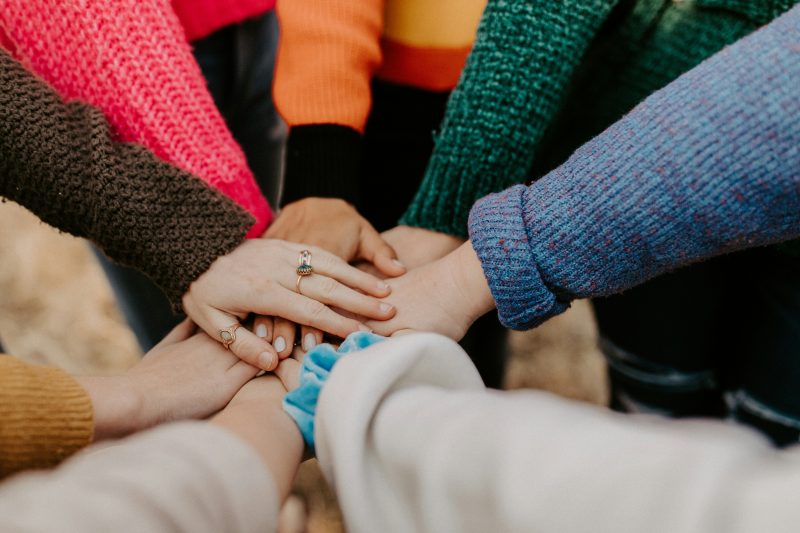
How can large-scale public and private sector partnerships strengthen educational outreach and impact through initiatives like Rise Up?
In a quiet government school tucked away in rural Tamil Nadu, a group of children now start their mornings a little differently. They enter classrooms not just with books in their bags, but with curiosity in their hearts. For many of them, this wasn’t always the case. A year ago, most were first-generation learners—timid, unsure, and slowly slipping through the cracks of the education system.
But today, they’re part of “Rise Up”, an initiative by IGF-India that is transforming access to quality learning, confidence-building, and essential life skills for underserved students.
The reason this is possible? Strong partnerships between the public and private sectors.
We’ve learned something powerful at IGF-India: when schools, government institutions, and socially committed businesses come together, impact doesn’t just add up—it multiplies.
How the Power of Partnership Works
In Rise Up, government schools bring the reach, corporate partners bring the resources, and IGF-India brings the heart—the on-ground expertise to implement programs that actually matter to children.
Public sector partners give us access to school infrastructure and data, helping us reach the most in-need communities
Private sector allies provide funding, mentorship, digital tools, and volunteers
IGF-India acts as the bridge, designing content, training teachers, facilitating student engagement, and measuring impact
Together, we create something no single entity could achieve alone: a movement that lifts not just individuals, but entire communities.
A Story That Shows the Difference
Take the example of Vivek, a shy 13-year-old boy from a small school in Maharashtra. Before Rise Up, he barely spoke in class. But through a storytelling module supported by one of our corporate partners and delivered within a government school framework, he found his voice—literally. Today, he leads morning assembly, helps his peers with reading, and says he wants to “teach like the people who came from the city.”
Vivek’s transformation was powered by partnership—a public school, a private sponsor, and IGF-India working together to give him not just education, but belief in himself.

Why These Collaborations Matter
Because the challenges are too big for any one sector to solve alone.
Because government systems have the scale, companies have the resources, and nonprofits like us have the reach, trust, and understanding of what communities truly need.
When we Rise Up together, we move beyond charity and towards collective responsibility.
At IGF-India, we see every partnership not as a transaction, but as a shared promise—to take education where it’s needed most, to uplift children who are ready to learn, and to remind every Vivek out there that his story matters.
Because when public intent meets private commitment, and both are rooted in community spirit, every child has a chance to rise.



